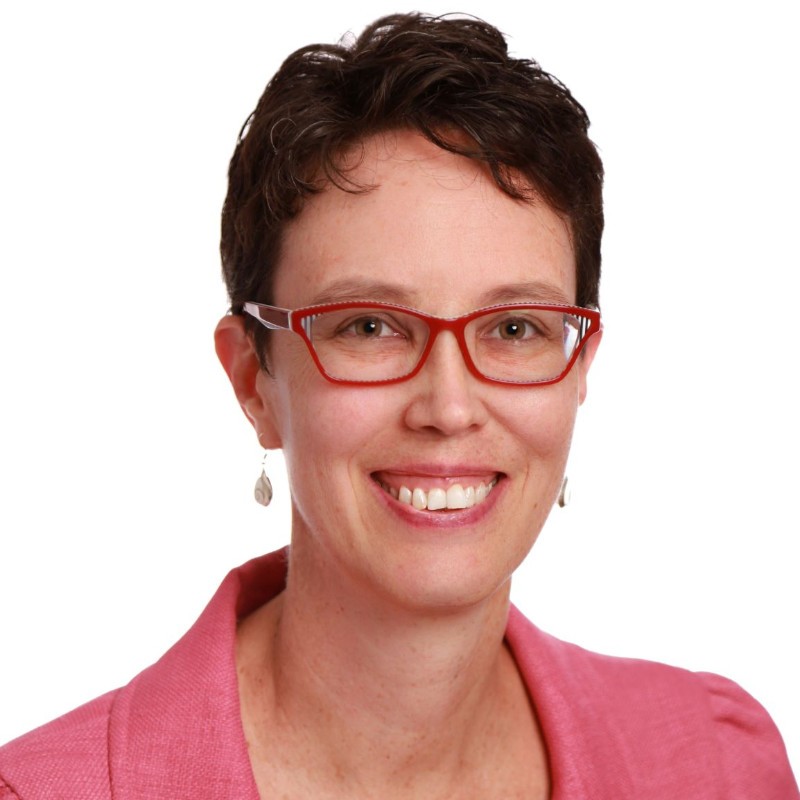Leveraging Libraries to Advance Digital Equity
Tuesday, November 1, 2022
Digital Beat
Leveraging Libraries to Advance Digital Equity

America’s libraries have deep experience in meeting digital equity needs for people of all ages and backgrounds with unparalleled reach and trust across the nation. Libraries are actively involved in a larger digital equity ecosystem, and often have long-established partnerships and relationships with local and regional groups that can be leveraged to achieve community broadband equity goals for vulnerable populations. Considering libraries' successful history in advancing digital equity, policymakers should leverage libraries’ expertise, experience, services, and existing connections at the state and local levels to avoid costly program duplication and accelerate planning, development, implementation, and operational efficiency.
To create a future where everyone is fully connected and engaged online, each community needs to leverage all its assets—including non-profits, internet service providers, businesses, government agencies, schools, state libraries, etc.—to work together to understand the problems and implement appropriate solutions. Community-based digital equity coalitions are growing in number and sophistication throughout the nation. They combine the unique experiences and expertise of diverse organizations, as well as the lived experiences of unconnected and marginalized communities that may include people with disabilities, people of color, and low-income and/or rural residents to create a connected future. Libraries often lead and/or contribute to these coalitions.

Public libraries play a vital role in providing access to the internet, devices, digital content, and technology training, particularly for people of color and those in low-income households. In 2019, nearly 54 million Americans accessed the internet in public places, and public libraries alone hosted nearly 224 million public internet use sessions. During the pandemic, libraries of all kinds explored new and innovative ways to further extend broadband beyond the library walls, including amplified Wi-Fi, hotspot lending, library vehicles with internet access, and underwriting home internet access for low-income families. About one-third of public libraries provide internet hotspots for check out.
In addition to having an internet connection, residents also need devices that can connect to the internet. Libraries of all types are lending or partnering with others to give away the technology their community needs to meet their personal digital goals. Many libraries also provide specialized hardware and software to support users who have disabilities.
Building digital skills is a vital component of digital equity and one that has historically received little federal attention or funding, particularly relative to broadband technology investments. Access to the internet and devices is necessary, but not sufficient for digital equity. Digital literacy and skill development work best with instruction to help learners use technology to accomplish their goals and are not tied to a specific tool.
88% of all public libraries offer formal or informal digital literacy programming to community residents
Furthermore, digital literacy must be built on basic literacy and extend beyond technical skills to include critical thinking, problem-solving, and a mindset of lifelong learning. Technology is constantly changing, and residents need to stay abreast of these changes to stay connected, and adapt and use new devices, platforms, and services. Sustainable broadband adoption and full participation in the digital economy demands increased attention on skills building. Libraries are highly trusted as sources of information and venues to acquire digital skills training.
Libraries meet learners where they are, from beginning technology skills to building critical thinking and evaluation to advanced coding and digital creation. Modes range from formal classes to one-on-one coaching to drop-in labs and on-the-fly technology assistance. This work is often resource-intensive, particularly to reach and support people starting with the least technology familiarity.
Emerging collaborative models allow libraries, often with community-based partners, to share resources and expertise across multiple locations.
Digital skills building also exists within a larger basic literacy and information literacy ecosystem.
With the rise of misinformation, librarians are at the forefront of building skills so users are informed, engaged, and think critically about the information they consume and create online.
Libraries are unique in that they provide:
- Reach with a physical presence in communities of all sizes, as well as in K-12 schools, colleges and universities, military bases, and more that provide high-speed internet access, computers, specialty software applications, central meeting spaces, and trusted hubs for information and community referrals for people across diverse backgrounds and interests;
- Expertise and resources with trained staff experienced in tackling digital equity gaps, boosting literacies and digital skills needed to survive and thrive in today’s networked world, and developing collections and resources relevant to local needs; and
- Sustainable, flexible collaboration ranging from digital equity coalitions to state workforce development plans to telehealth collaborations that strengthen networks and support sustainability.
These assets align with the goals of the Infrastructure Investment and Jobs Act and must be leveraged as part of upcoming state planning efforts, as well as efforts to boost awareness of and enrollment in the Affordable Connectivity Program. Not only do library staff have deep experience enabling digital access and skills building, they have a proven track record of stewarding public funding to successfully meet the needs of local residents of all ages and backgrounds.
Accordingly, the American Library Association (ALA) recommends that:
- State broadband leaders and policymakers include state library agencies in statewide digital equity planning groups and leverage their unparalleled reach into all public libraries to strengthen communications and outreach statewide;
- State and local education agencies include K-12 school librarians and college and university library leaders in digital equity planning and deployment;
- Libraries increase awareness of their local technology assets to improve coordination across all levels of government and develop proposals for forthcoming funding programs;
- Congress enable sustainable funding for digital equity through measures like the Digital Equity Foundation Act;
- Federal agencies continuously work to reduce administrative and record-keeping barriers that limit participation by small libraries and other community-based entities; and
- National library support organizations aggregate, amplify and advocate with and for state and local libraries to ensure full participation in digital equity planning and implementation and synthesize and share best practices to create scalable models.
The federal government is making historic investments in advancing digital equity, literacy, and inclusion for all. As a cornerstone for equitable access to information and broadband-enabled services, libraries must play a leadership role in this moment. They have been doing this work for decades. And policymakers and prospective partners should include libraries in their plans because libraries represent an excellent return on investment—leveraging their existing physical, technological, and expert resources and community reputation.
See Leverage Libraries to Achieve Digital Equity for All
Larra Clark is the Deputy Director of the ALA Public Policy & Advocacy Office and the Public Library Association. Michelle Frisque is a broadband consultant for the American Library Association.
The Benton Institute for Broadband & Society is a non-profit organization dedicated to ensuring that all people in the U.S. have access to competitive, High-Performance Broadband regardless of where they live or who they are. We believe communication policy - rooted in the values of access, equity, and diversity - has the power to deliver new opportunities and strengthen communities.
© Benton Institute for Broadband & Society 2022. Redistribution of this email publication - both internally and externally - is encouraged if it includes this copyright statement.
For subscribe/unsubscribe info, please email headlinesATbentonDOTorg






